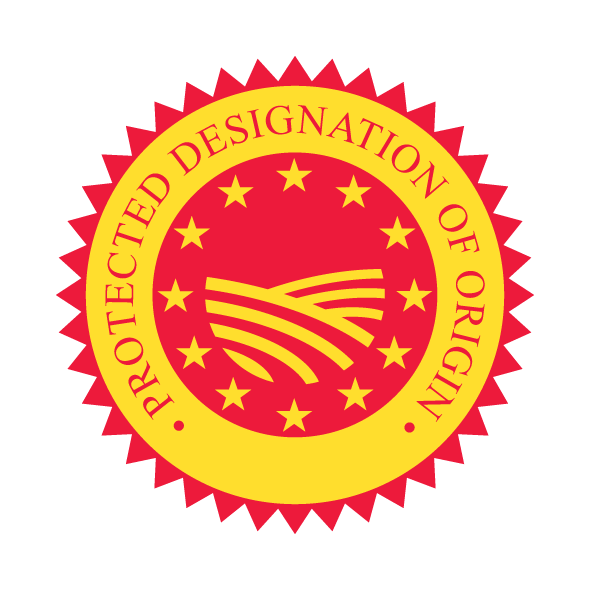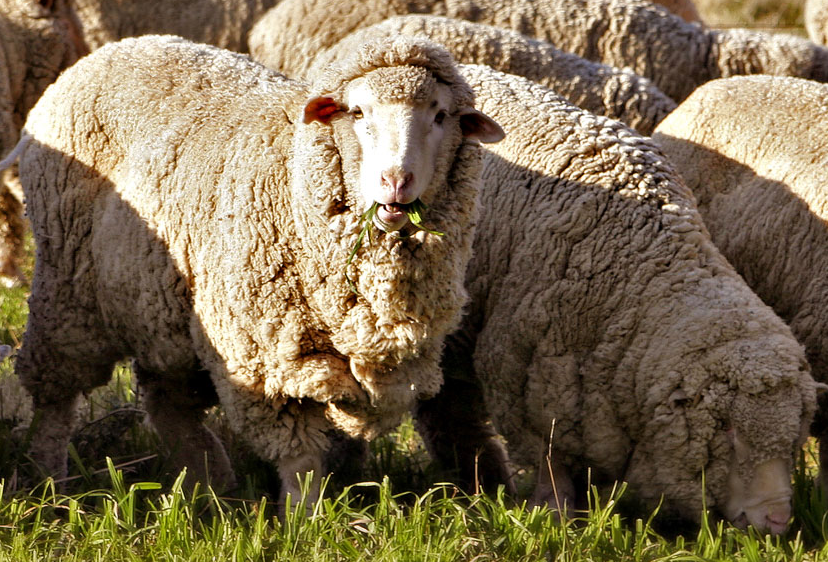|
Torta Del Casar
Torta del Casar ( ext, Torta del Casal) is a cheese made from sheep's milk in the Extremadura region of Spain. It is named after Casar de Cáceres, its city of origin. The milk is curdled using a coagulant found in the pistils of the cardoon, a wild thistle. This ingredient lends a subtle bitterness to the otherwise rich and slightly salty tasting cheese. It is aged for at least sixty days. The fully ripe cheese has a creamy consistency in the center, and is traditionally eaten by slicing off the top and scooping out the inside. In 1999, the cheese was given protected-origin status, regulations that stipulate not only where it can be produced, but also that it can only be made with the milk of Merino and Entrefina sheep. These breeds have a low yield of milk, and it takes the milk of 20 sheep to make a wheel of Torta del Casar. See also *List of cheeses *List of sheep milk cheeses This is a list of sheep milk cheeses. Sheep milk cheese is prepared from sheep milk (or ... [...More Info...] [...Related Items...] OR: [Wikipedia] [Google] [Baidu] |
Torta Del Casar
Torta del Casar ( ext, Torta del Casal) is a cheese made from sheep's milk in the Extremadura region of Spain. It is named after Casar de Cáceres, its city of origin. The milk is curdled using a coagulant found in the pistils of the cardoon, a wild thistle. This ingredient lends a subtle bitterness to the otherwise rich and slightly salty tasting cheese. It is aged for at least sixty days. The fully ripe cheese has a creamy consistency in the center, and is traditionally eaten by slicing off the top and scooping out the inside. In 1999, the cheese was given protected-origin status, regulations that stipulate not only where it can be produced, but also that it can only be made with the milk of Merino and Entrefina sheep. These breeds have a low yield of milk, and it takes the milk of 20 sheep to make a wheel of Torta del Casar. See also *List of cheeses *List of sheep milk cheeses This is a list of sheep milk cheeses. Sheep milk cheese is prepared from sheep milk (or ... [...More Info...] [...Related Items...] OR: [Wikipedia] [Google] [Baidu] |
Spain
, image_flag = Bandera de España.svg , image_coat = Escudo de España (mazonado).svg , national_motto = ''Plus ultra'' (Latin)(English: "Further Beyond") , national_anthem = (English: "Royal March") , image_map = , map_caption = , image_map2 = , capital = Madrid , coordinates = , largest_city = Madrid , languages_type = Official language , languages = Spanish language, Spanish , ethnic_groups = , ethnic_groups_year = , ethnic_groups_ref = , religion = , religion_ref = , religion_year = 2020 , demonym = , government_type = Unitary state, Unitary Parliamentary system, parliamentary constitutional monarchy , leader_title1 = Monarchy of Spain, Monarch , leader_name1 = Felipe VI , leader_title2 = Prime Minister of Spain ... [...More Info...] [...Related Items...] OR: [Wikipedia] [Google] [Baidu] |
Casar De Caceres, Caceres
Casar may refer to: Places Spain * Casar de Cáceres * Casar de Palomero * El Casar * El Casar de Escalona United States * Casar, North Carolina Other uses * CASAR, German wire rope manufacturer, part of WireCo Worldgroup * El Casar (Madrid Metro) * Operation Cäsar, part of the German army attack Operation Doppelkopf in World War II People with the surname * Amira Casar, French actress * Greg Casar (born 1989), American politician * Sandy Casar Sandy Casar (born 2 February 1979) is a French former professional racing cyclist, who competed as a professional between 2000 and 2013, all for the team. His greatest results have been winning three stages of the Tour de France, as well the over ..., French racing cyclist {{disambiguation, surname ... [...More Info...] [...Related Items...] OR: [Wikipedia] [Google] [Baidu] |
Extremadura
Extremadura (; ext, Estremaúra; pt, Estremadura; Fala: ''Extremaúra'') is an autonomous community of Spain. Its capital city is Mérida, and its largest city is Badajoz. Located in the central-western part of the Iberian Peninsula, it is crossed from east to west by the Tagus and Guadiana rivers. The autonomous community is formed by the two largest provinces of Spain: Cáceres and Badajoz. Extremadura is bordered by Portugal to the west and by the autonomous communities of Castile and León (north), Castilla–La Mancha (east) and Andalusia (south). It is an important area for wildlife, particularly with the major reserve at Monfragüe, which was designated a National Park in 2007, and the International Tagus River Natural Park (''Parque Natural Tajo Internacional''). The regional executive body, led by the President of Extremadura, is called Junta de Extremadura. The Day of Extremadura is celebrated on 8 September. [...More Info...] [...Related Items...] OR: [Wikipedia] [Google] [Baidu] |
Sheep
Sheep or domestic sheep (''Ovis aries'') are domesticated, ruminant mammals typically kept as livestock. Although the term ''sheep'' can apply to other species in the genus ''Ovis'', in everyday usage it almost always refers to domesticated sheep. Like all ruminants, sheep are members of the order Artiodactyla, the even-toed ungulates. Numbering a little over one billion, domestic sheep are also the most numerous species of sheep. An adult female is referred to as a ''ewe'' (), an intact male as a ''ram'', occasionally a ''tup'', a castrated male as a ''wether'', and a young sheep as a ''lamb''. Sheep are most likely descended from the wild mouflon of Europe and Asia, with Iran being a geographic envelope of the domestication center. One of the earliest animals to be domesticated for agricultural purposes, sheep are raised for fleeces, meat (lamb, hogget or mutton) and milk. A sheep's wool is the most widely used animal fiber, and is usually harvested by shearing. In Commonw ... [...More Info...] [...Related Items...] OR: [Wikipedia] [Google] [Baidu] |
Protected Designation Of Origin
The protected designation of origin (PDO) is a type of geographical indication of the European Union and the United Kingdom aimed at preserving the designations of origin of food-related products. The designation was created in 1992 and its main purpose is to designate products that have been produced, processed and developed in a specific geographical area, using the recognized know-how of local producers and ingredients from the region concerned. The list below also shows other geographical indications. Features The characteristics of the products protected are essentially linked to their terroir. The European or UK PDO logo, of which the use is compulsory, documents this link. European Regulation 510/2006 of 20 March 2006 acknowledges a priority to establish a community protection system that ensures equal conditions of competition between producers. This European Regulation is intended to guarantee the reputation of regional products, adapt existing national protections t ... [...More Info...] [...Related Items...] OR: [Wikipedia] [Google] [Baidu] |
Sheep's Milk
Sheep's milk (or ewes' milk) is the milk of domestic sheep. It is commonly used to make cultured dairy products such as cheese. Some of the most popular sheep cheeses include feta (Greece), ricotta (Italy), and Roquefort (France). Sheep breeds Specialized dairy breeds of sheep yield more milk than other breeds. Common dairy breeds include: * East Friesian (Germany) * Sarda (Italy) * Lacaune (France) * British Milk Sheep (UK) * Chios (Greece) * Awassi (Syria) * Assaf (Israel) * Zwartbles (Friesland, Netherlands) In the U.S., the most common dairy breeds are the East Friesian and the Lacaune. Meat or wool breeds do not produce as much milk as dairy breeds, but may produce enough for small amounts of cheese and other products. Milk production period Female sheep (ewes) do not produce milk constantly. Rather, they produce milk during the 80–100 days after lambing. Sheep naturally breed in the fall, which means that a majority of lambs are born in the winter or early spring ... [...More Info...] [...Related Items...] OR: [Wikipedia] [Google] [Baidu] |
Casar De Cáceres
Casar de Cáceres is a town and municipality in the province of Province of Cáceres, Cáceres, in the autonomous community of Extremadura. With 4532 inhabitants in 2017, it is the second most populous municipality in the Tajo-Salor Mancomunidad. In the municipality there are two population centers: Casar de Cáceres and La Perala. The capital of the municipality is located about 10 kilometers from the capital of Caceres, in the middle of Vía de la Plata. During the Ancien Régime, the municipality belonged to the c''omunidad de villa y tierra'' of Cáceres. and until the first half of the 19th century it was considered as a hamlet of the village of Cáceres. History Although the precise origin of the town is unknown, archaeologists have found a Bronze Age fort, a pre-Roman funeral stele and anthropomorphic tombs, among other remains, suggesting inhabitants since ancient times. During Roman times, the town lay along the Vía de la Plata. In 1291, Sancho IV of Castile granted th ... [...More Info...] [...Related Items...] OR: [Wikipedia] [Google] [Baidu] |
Flocculation
Flocculation, in the field of chemistry, is a process by which colloidal particles come out of suspension to sediment under the form of floc or flake, either spontaneously or due to the addition of a clarifying agent. The action differs from precipitation in that, prior to flocculation, colloids are merely suspended, under the form of a stable dispersion (where the internal phase (solid) is dispersed throughout the external phase (fluid) through mechanical agitation) and are not truly dissolved in solution. Coagulation and flocculation are important processes in water treatment with coagulation aimed to destabilize and aggregate particles through chemical interactions between the coagulant and colloids, and flocculation to sediment the destabilized particles by causing their aggregation into floc. Term definition According to the IUPAC definition, flocculation is "a process of contact and adhesion whereby the particles of a dispersion form larger-size clusters". Flocculation ... [...More Info...] [...Related Items...] OR: [Wikipedia] [Google] [Baidu] |
Cardoon
The cardoon, ''Cynara cardunculus'' (), also called the artichoke thistle, is a thistle in the family Asteraceae. It is a naturally occurring species that also has many cultivated forms, including the globe artichoke. It is native to the western and central Mediterranean region, where it was domesticated in ancient times and still occurs as a wild plant. Description The wild cardoon is a stout herbaceous perennial plant growing tall, with deeply lobed and heavily spined green to grey-green tomentose (hairy or downy) leaves up to long, with yellow spines up to 3.5 cm long. The flowers are violet-purple, produced in a large, globose, massively spined capitulum up to in diameter.Tela Botanica: ''Cynara cardunculus'' L. (in French)Huxley, A., ed. (1992). ''New RHS Diction ... [...More Info...] [...Related Items...] OR: [Wikipedia] [Google] [Baidu] |
Merino
The Merino is a breed or group of breeds of domestic sheep, characterised by very fine soft wool. It was established in Spain near the end of the Middle Ages, and was for several centuries kept as a strict Spanish monopoly; exports of the breed were not allowed, and those who tried risked the death penalty. During the eighteenth century, flocks were sent to the courts of a number of European countries, including France (where they developed into the Rambouillet), Hungary, the Netherlands, Prussia, Saxony, Estonia, Livonia and Sweden. The Merino subsequently spread to many parts of the world, including South Africa, Australia, and New Zealand. Numerous recognised breeds, strains and variants have developed from the original type; these include, among others, the American Merino and Delaine Merino in the Americas, the Australian Merino, Booroola Merino and Peppin Merino in Oceania, the Gentile di Puglia, Merinolandschaf and Rambouillet in Europe. The Australian Poll Merino is a ... [...More Info...] [...Related Items...] OR: [Wikipedia] [Google] [Baidu] |



